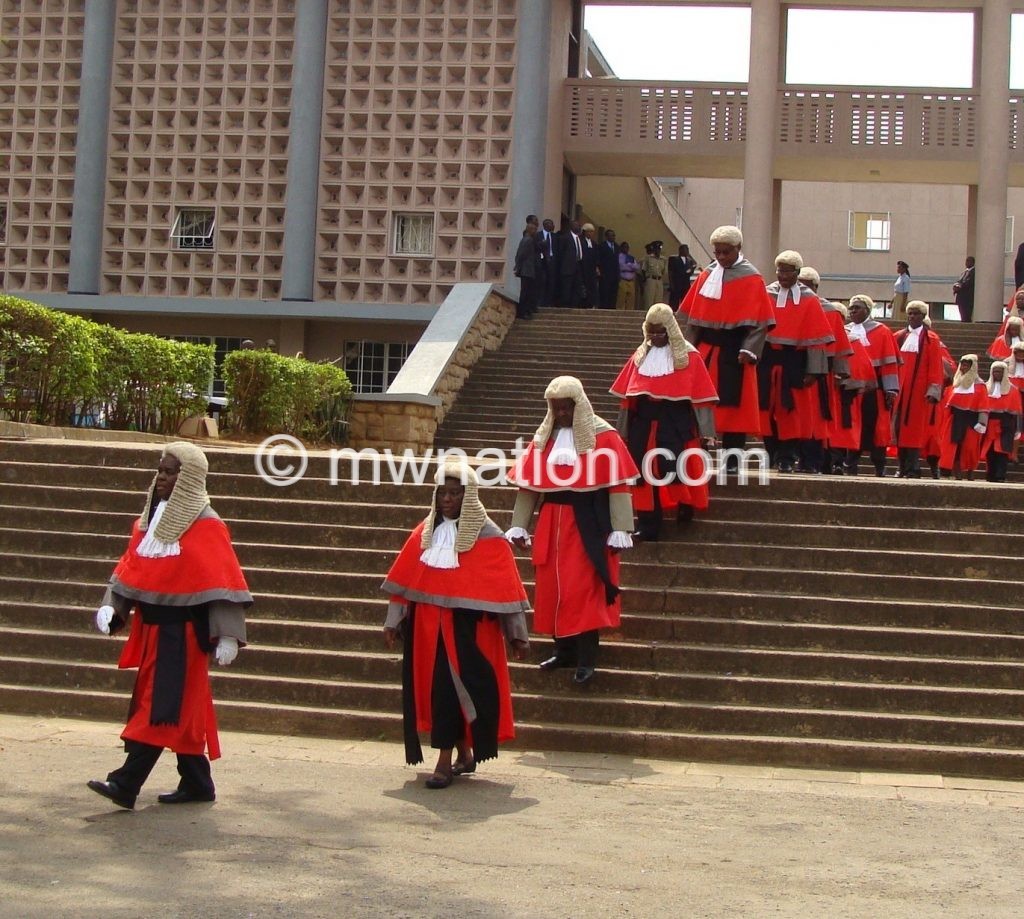Funding woes have forced the Malawi Supreme Court of Appeal to stop hearing cases since December 2022, a development that is feared to worsen backlog of cases and compromise justice delivery.
High Court of Malawi and Supreme Court registrar Kondwani Banda said in an interview on Wednesday that the Supreme Court requested for funding from Treasury to sit this month, but the response was not promising.
“All cases that were scheduled have been affected. It is not a problem of the Judiciary, but Treasury failing to fund us,” he said.
But in a separate interview, Ministry of Finance and Economic Affairs spokesperson Taurai Banda said the request for additional resources for Supreme Court activities was also authorised and processed.
He said: “Our position as Treasury is that funding is based on cash flows, and cash flows are prepared by the ministries, departments and agencies [MDAs] in line with the approved budget. You may wish to know that funding for Judiciary has been 100 percent.
“However, in regards to the request for additional resources for Supreme Court activities, it was authorised and processed.”
According to the draft estimates for the programme-based budget document number five, out of the K24 billion allocated to the Judiciary, K9.5 billion is for adjudication and case management. The Supreme Court has the lowest allocation of K105 million while the High Court and magistrate’s courts each have about K4.5 billion allocated for their operations.
The allocations could be based on volume of work as the Supreme Court handles fewer cases than the two courts. In the 2020/21 financial year, the Supreme Court registered 100 cases while the High Court had 3 032 and the magistrate’s court had 5 116.
In its report to Parliament highlighting achievements and challenges in the previous year, the Judiciary did not capture funding as one of their challenges as it only mentioned office space, skills gaps and dilapidated buildings for courts and offices.
A National Audit Office audit report for the year ending June 30 2021 submitted to Parliament on Monday, has also censured the Judiciary for the backlog of cases, 87 of which date back to 2012.
According to the report, the delays to execute justice are contrary to provisions under Section 42 of the Constitution which states that every person arrested for or accused of an offence, in addition to the rights they have, has the right to public trial within a reasonable time.
Reads the report: “Inspection of the case register disclosed that eighty-seven [87] cases dating from August 2012 were still outstanding as at the date of audit contrary to constitutional provision cited above.”
While funding for Judiciary is an issue, the audit report has also revealed gaps in the management of resources within this arm of government.
The report said an inspection of payment vouchers in the Integrated Financial Management and Information System cash book revealed that payment vouchers worth K54.3 million were not presented for audit, resulting in a limitation of scope for the audit.
The report further disclosed that the office procured items to the tune of K32 million without the use of a Local Purchase Order and that procurements worth K18.7 million were made without evaluation by the Internal Procurement and Disposal Committee, contrary to the public procurement law.
“Financial statements for the year ending June 2021 were submitted on the 17th of November 2021 instead of the 31st October 2021 as required by regulation. This delayed the whole process in the delivery of the end product [audit report],” reads the report.
An inspection of payment vouchers for subsistence allowances, according to the audit, disclosed that to K17.5 million was paid out for various activities without supporting them with relevant activity reports.
The controlling officer for Judiciary, alongside other queried MDAs, is expected to appear before the Public Accounts Committee (PAC) to respond to these queries.
Revelations of funding woes to the Judiciary are in sharp contrast to promises by President Lazarus Chakwera who has repeatedly assured the public that it was his wish to adequately fund the arm to facilitate speedy dispensation of justice.
Chief Justice Rezine Mzikamanda has also indicated his desire to see the courts deal with a backlog of cases.
The post Funding woes hit supreme court first appeared on The Nation Online.
 Moni Malawi
Moni Malawi 

